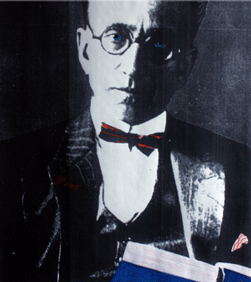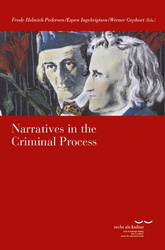Narratives in the Criminal Process
Frankfurt am Main: Klostermann 2021
The role of narratives in legal contexts has been explored in multidisciplinary research for several decades. A common claim in this research is that the understanding of narratives is crucial to the understanding of any legal process, especially to most representations of the facts in a criminal case. It seems justified to say that law’s cultural foundations and presuppositions are always in some way or another manifested in its narratives and acts of narration. The research conducted within the field of law and narrative helps to expand our knowledge of the multiple ways in which legal thinking and decision-making rely on narrative, in both senses of the term. It also enhances our understanding of how narratives are put to use as rhetorical tools, both in the courtroom and in the court’s written judgments. The contributions to this volume present the field of law and narrative as it exists today and expand the area of inquest into fields like text linguistics, speech act theories, ordinary language theory, public international law, artificial intelligence and various media transformations of law stories.
A sample reading can be found here.
About the editors:
Frode Helmich Pedersen is associate professor at the Department of Linguistic, Literary and Aesthetic Studies at the University of Bergen, Norway.
Espen Ingebrigtsen is a postdoctoral fellow at the Department of Linguistic, Literary and Aesthetic Studies at the University of Bergen, Norway.
Werner Gephart ist seniorprofessor for sociology at the Institute for Political Science and Sociology as well as founding Director of the Käte Hamburger Center "Law as Culture" at the University of Bonn.


